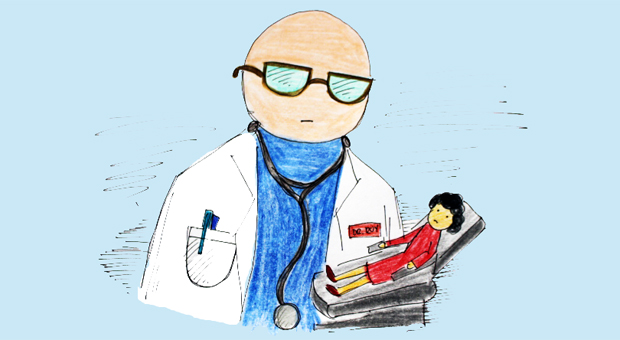
Currently, Canadian medical schools are taking a step in the right direction by trying to incorporate how doctors should interact with their patients into the curriculum. Despite this, there needs to be more of a focus on teaching medical students to recognise inappropriate behaviour in their colleagues and encourage them to speak up.
In light of recent high-profile and widespread cases of sexual abuse by doctors, a recent article in The Globe and Mail explores the ways in which Canadian medical schools are working to educate their students on the nature of patient abuse.
Even after high profile cases like Larry Nassar, medical schools perpetuate the idea that doctors who abuse their patients are outliers who shouldn’t be considered in the classroom. By not stressing the need to report suspected abuse or downplaying its existence within the field, educators are making a serious misstep with real consequences for current and future patients.
The problem with simply telling students what they shouldn’t be doing with patients isn’t going to have an effect on if they will abuse them. Doctors who abuse their patients, like Larry Nassar, aren’t misinformed: they know they’re doing something wrong.
To find abusive practitioners, more attention needs to be paid to patients who respond negatively to their doctors. When a patient mentions something’s wrong with the way they’ve been treated, they have a right to be taken seriously. We need our medical schools to teach students to trust their patients, just as their patients trust them.
If medical schools change their tactics, doctors already practising medicine will also need to be given updated training. Just as medicine continues to evolve after doctors leave school, so too will resources and research on sexual abuse.
Currently, there’s no screening process that can fully weed out potential predators from medical schools. No matter how much training they receive on what’s appropriate, there will still be abusers who slip through the cracks.
The way to make a real impact is to do what isn’t being done right now. Medical schools need to teach their students how to make the transition from passive bystanders to interveners in cases of suspected abuse.
Currently, the process of filing a complaint against a doctor to the College of Physicians and Surgeons of Ontario can take up to 10 months to complete. In addition to this, any information gathered during an investigation by the college can’t be used in any subsequent court cases.
Accessible, fair and clear procedures to report abusers in the medical field is something desperately needed. Right now, patient safety isn’t the focal point of the college’s complaints process, and that needs to change.
Medical professionals wield a unique power over others, and if they abuse it, they need to be held accountable. That responsibility within the profession starts with the culture of medical schools. If students are taught not only that abuse is wrong, but also that they can recognize and report it, the stage for real change will be set.
— Journal Editorial Board
Tags
Editorials, medical care, medical school, sexual violence
All final editorial decisions are made by the Editor(s)-in-Chief and/or the Managing Editor. Authors should not be contacted, targeted, or harassed under any circumstances. If you have any grievances with this article, please direct your comments to journal_editors@ams.queensu.ca.
